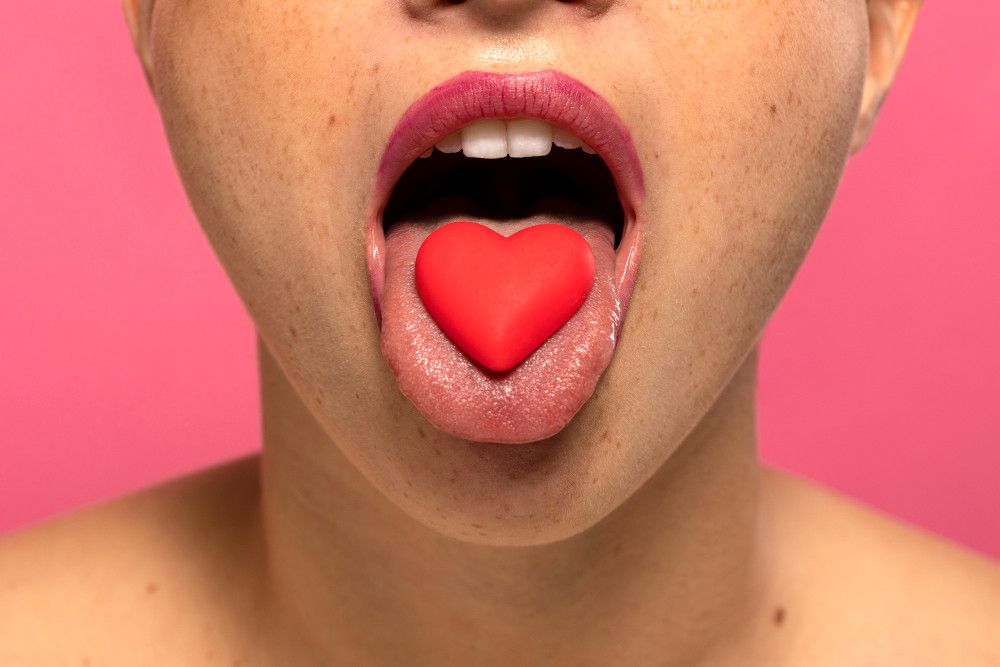Lidah adalah organ yang bertugas untuk mengecap rasa. Lidah atau mulut dapat terasa asin ketika Anda mengonsumsi makanan asin. Namun kondisi medis tertentu dapat menyebabkan lidah terasa asin meskipun Anda tidak mengonsumsi makanan yang mengandung garam. Apa saja penyebab lidah mengecap rasa asin? Simak ulasannya berikut ini.
Penyebab Lidah Terasa Asin
Dehidrasi
Dehidrasi dapat menyebabkan lidah terasa asin. Air liur secara alami dapat mengandung sedikit garam yang menyebabkan rasa asin. Ketika Anda mengalami dehidrasi, garam pada air liur akan lebih terkonsentrasi sehingga memunculkan rasa asin.
Mulut kering
Mulut kering merupakan salah satu tanda dehidrasi. Namun, mulut kering juga bisa menjadi kondisi medis lainnya yang dikenal dengan nama xerostomia. Beberapa gejala yang dialami pengidap xerostomia, antara lain air liur terasa asin atau pahit, dan mulut terasa seperti ada bola kapas di dalamnya. Kondisi ini bisa disebabkan oleh efek samping obat-obatan atau rokok tembakau.
Baca Juga: Lidah Pahit saat Sakit? Ini Penyebab dan Cara Mengatasinya
Postnasal drip
Postnasal drip adalah kondisi penumpukan lendir di bagian belakang tenggorokan. Jika lendir ini bercampur dengan air liur di mulut, lendir ini dapat menyebabkan rasa asin. Gejala lain dari postnasal drip yang bisa Anda rasakan adalah hidung tersumbat, berair, atau sulit bernapas.
Infeksi mulut
Masalah infeksi mulut yang dapat menyebabkan lidah atau mulut terasa asin antara lain:
- Gingivitis, yaitu peradangan pada gusi
- Periodontitis, yaitu peradangan gusi yang menyebabkan radang di area sekitar gigi
- Oral thrush, yaitu adanya penumpukan jamur di lapisan mulut
Refluks gastroesofageal (GERD)
GERD atau refluks asam lambung adalah kondisi dimana naiknya asam lambung kembali ke kerongkongan. Pada GERD, katup bagian bawah antara esofagus dan lambung melemah sehingga memungkinkan asam lambung naik ke esofagus. Hal ini menyebabkan sensasi terbakar di ulu hati yang disebut heartburn.
Sebuah penelitian mengungkapkan GERD dapat memengaruhi kemampuan orang untuk merasakan asin.
Penyebab lainnya
Selain penyebab di atas, mulut terasa asin juga dapat disebabkan oleh penyebab lainnya seperti:
- Kekurangan zinc atau vitamin B12
- Paparan terapi radiasi
- Efek samping obat
- Kehamilan
- Cedera atau trauma kepala dan operasi pembedahan
- Hipertiroid
- Diabetes
- Gagal ginjal
- Gagal hati
- Menopause
Baca Juga: Ciri-Ciri Warna Lidah yang Sehat dan Tidak, Kenali Perbedaannya
Penanganan Lidah atau Mulut Terasa Asin
Penanganan lidah atau mulut terasa asin perlu disesuaikan dengan penyebabnya. Beberapa kondisi seperti kehamilan atau dehidrasi, dapat mereda dengan sendirinya setelah persalinan atau setelah Anda mencukupi kebutuhan cairan tubuh. Sedangkan untuk penyebab lainnya, Anda perlu berkonsultasi ke dokter agar mendapat penanganan yang sesuai.
Secara umum, penanganan lidah atau mulut terasa asin bisa dilakukan dengan cara berikut:
- Memperbanyak minum air putih
- Menjaga kebersihan mulut setiap hari dengan menyikat gigi, berkumur, dan dental flossing
- Mengurangi konsumsi alkohol atau penggunaan tembakau
- Menghindari makanan berminyak atau pedas
- Mengunyah permen karet
- Mengisap permen pelega tenggorokan
Jika paparan obat-obatan atau terapi menyebabkan perubahan kemampuan lidah dalam mengecap rasa, Anda bisa berkonsultasi ke dokter mengenai alternatif pengobatan lainnya. Apabila lidah terasa asin dan mengganggu kenyamanan Anda sehari-hari sebaiknya periksakan ke dokter. Anda juga bisa memanfaatkan fitur konsultasi pada aplikasi Ai Care yang tersedia pada App Store atau Play Store.
Mau tahu informasi seputar penyakit lainya? Cek di sini, yah!
- dr Nadia Opmalina
Johnson, J. (2024). Why do I have a salty taste in my mouth?. Available from: https://www.medicalnewstoday.com/articles/321202#dehydration
Nolan-Pleckham, M. (2024). What Causes a Salty Taste in the Mouth?. Available from: https://www.verywellhealth.com/salty-taste-in-mouth-7229717#toc-treatments
Cleveland Clinic. (2024). What’s Causing That Salty Taste in Your Mouth?. Available from: https://health.clevelandclinic.org/salty-taste-in-mouth












